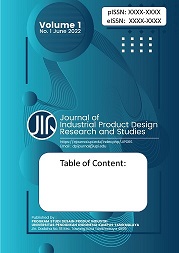Design of Garbage Disposal Flow on Jalan Petir Tasikmalaya
Abstract
The problem of waste in Indonesia is an endless topic to talk about. Various methods have been carried out as an effort to overcome the overflowing pile of garbage, especially the garbage that is scattered everywhere, including in the ditches. This problem can spread to all aspects of life such as health, social, environmental, economic, even political and cultural. The lack of public understanding of environmental conservation and the poor quality of waste management are the main factors in the accumulation of waste that occurs in Indonesia, especially in densely populated areas. This study aims to find an approach related to waste reduction and management solutions on Jalan Petir, Tawang District, Tasikmalaya City so that it does not scatter and clog the surrounding waters, especially the ditches that stretch along densely populated roads. This research using survey methods and qualitative analysis has resulted in the design of a coordinated waste disposal flow from households, the process of sorting waste to temporary shelters and ending in final disposal sites that cannot be separated from cooperation between the community, the government, and surrounding businesses. It is very important to do this so that the process and goal of reducing waste accumulation runs well and reduces the risk of other adverse impacts such as floods, virus outbreaks, and other disasters that can occur if this waste problem is not handled properly as it should be.
Full Text:
PDFReferences
Fahruddin, A. S., Arisanty, D., and Hastuti, K. P. (2014). Persepsi nasabah terhadap bank sampah gerakan peduli sampah FKIP UNLAM Banjarmasin. Jurnal Pendidikan Geografi, 1(2), 28-41.
Indawati, I. (2020). Identifikasi timbulan dan emisi gas rumah kaca sampah pasar di Kota Surabaya. Jurnal Matriks Teknik Sipil, 8(4), 454-461.
Indrawati, D. (2011). Upaya pengendalian pencemaran sungai yang diakibatkan oleh sampah. Indonesian Journal of Urban and Environmental Technology, 5(6), 185-192.
Jannah, H. (2020). Pemberdayaan masyarakat melalui pengelolaan sampah skala rumah tangga menggunakan metode komposting. Sasambo: Jurnal Abdimas, 2(1), 12-18.
Nim, T. K. (2015). Perilaku membuang sampah oleh masyarakat ditepian sungai kapuas: Studi kasus di Kelurahan Bangka Belitung Laut Kecamatan Pontianak Tenggara. Sociologique, Jurnal Sosiologi, 3(3), 1-16.
Septiani, U., Najmi, N., and Oktavia, R. (2021, October). Eco enzyme: Pengolahan sampah rumah tangga menjadi produk serbaguna di Yayasan Khazanah Kebajikan. Seminar Nasional Pengabdian Masyarakat LPPM UMJ, 1(1), 1-7.
Vassanadumrongdee, S., and Kittipongvises, S. (2018). Factors influencing source separation intention and willingness to pay for improving waste management in Bangkok, Thailand. Sustainable Environment Research 28(2), 90-99.
Zohoori, M., and Ghani, A. (2017). Municipal solid waste management challenges and problems for cities in low-income and developing countries. International Journal of Science and Engineering Applications, 6(2), 39-48.
DOI: https://doi.org/10.17509/jipdrs.v1i1.47472
Refbacks
- There are currently no refbacks.
Copyright (c) 2022 Universitas Pendidikan Indonesia (UPI)

This work is licensed under a Creative Commons Attribution-ShareAlike 4.0 International License.

This work is licensed under a Creative Commons Attribution-ShareAlike 4.0 International License.


